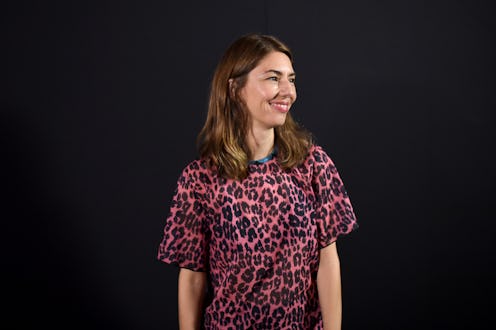
It's no secret that female directors get less attention and fewer opportunities than their male counterparts. Just look at the numbers. Of 2016's 250 top-grossing movies, for example, only 7 percent of those films were directed by a woman, according to a study from the Center for the Study of Women in Television & Film at San Diego State University. But the spotlight shifted — albeit, temporarily — at CHANEL's Tribeca Film Festival Women’s Filmmaker Luncheon, an event that celebrated women's brilliant work. While on the red carpet, I asked celebrity guests which female directors they admire most. And their answers made one reason we need more female directions incredibly clear: women have so much more range than they're given credit for.
Although male directors are known for their mastery in various genres — Judd Apatow is a comedy king, while M. Night Shyamalan is a horror guru — for some reason, we tend to lump all women under the "female directors" umbrella. While they share the trait of all being talented, there's no denying each woman brings something unique to the screen, as proven in the responses from the luncheon guests. It's about time we recognize these directors' individual contributions to Hollywood.
Take Lena Dunham, for example, whose work brings a sense of millennial realness to the screen and who isn't afraid to dive into the messy and uncomfortable. Good Girls Revolt's Joy Bryant has nothing but praise for Dunham and the skill she brings to the table. "I've worked with quite a few female directors and one of my best experiences was actually working with Dunham on Girls," says Bryant. "I thought that I've never worked with a woman that was in control of everything. Writing, directing, starring, and producing, and [she] was at ease in the whole process. It was really inspiring."
Bryant also compliments Sofia Coppola, whose film Lost in Translation made her the third woman to be nominated for the Best Director at the Oscars. "She has such a beautiful hand and taste and everything feels, there's a lightness and airiness to her work," she says. "And I also respect the fact that for someone who grew up with such a famous father, she made a name for herself in her own right." And Bryant is correct; Coppola's films have been praised in particular for their dream-like aesthetic rather than for the gritty realness common to Dunham's work.
Similarly, Coppola's projects couldn't be more different from another Oscar-winning director, Kathryn Bigelow. In 2010, Bigelow became the first woman to win the Best Director Oscar for The Hurt Locker, a gritty war thriller. As actor Alice Eve tells me on the Tribeca carpet, "Bigelow is obviously the pioneer of female directors of our generation and our time... And then, Nicole Holofcener I'm a huge fan of." The latter's résumé includes Enough Said and Walking and Talking. You may also recognize Holofcener from directing episodes of your favorite shows — Gilmore Girls, Parks and Rec, and Sex and the City. Again, this is a stark contrast to Bigelow's style.
It's worth noting the 2017 Tribeca Film Festival features 51 films with female directors — an all-time high. This offers a glimmer of hope that progress is being made in giving women more visibility and opportunity behind the camera. While on the red carpet, actor Lorraine Nicholson really hits the nail on the head about why this shift matters. "I think alternative voices are really important in storytelling and I think that obviously the industry has been dominated by a certain kind of person," she explains. "And I think it's going to be exciting for the audience to see some new fresh stuff."
Dunham, Bigelow, and Coppola — or other talents like, Ava DuVernay and Diablo Cody — each bring a "fresh" perspective. They're each uniquely talented far and above just being women succeeding in their field. And it'll truly be a celebratory moment when there are enough female directors that we can recognize them for something other than being women.